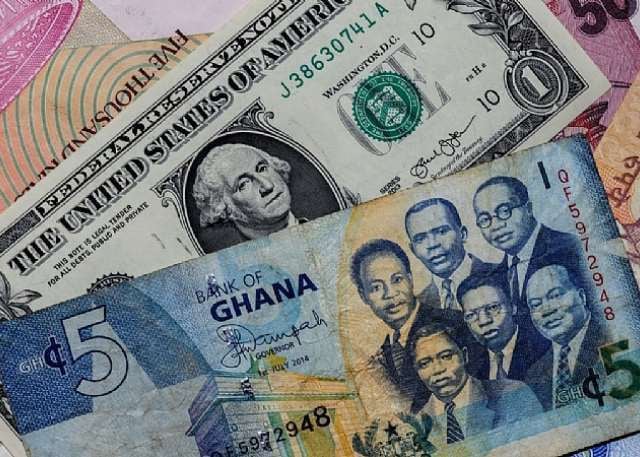The Ghanaian cedi continues its downward trajectory against major international currencies, notably the US dollar, the British pound, and the euro. As of September 3, 2025, the cedi’s performance reflects a widening gap between the official interbank rates offered by the Bank of Ghana and the rates prevalent in the retail foreign exchange market, particularly at forex bureaus. This disparity underscores the ongoing challenges facing Ghana’s economy and the pressures on its national currency. The weakened cedi has significant implications for import costs, inflation, and the overall cost of living for Ghanaians.
Analyzing the US dollar exchange rate, the Bank of Ghana’s interbank market quotes the cedi at GHS11.74 for buying and GHS11.76 for selling, reflecting a relatively stable, albeit depreciated, value. However, the retail market, specifically forex bureaus, paints a different picture. These bureaus are selling the dollar at an average rate of GHS12.26 and buying it at GHS11.63, indicating a higher cost for individuals and businesses seeking to acquire dollars. The difference between the interbank and forex bureau rates highlights the premium charged in the retail market, likely due to higher operational costs and market dynamics. The even higher rates of GHS12.69 for buying and GHS12.95 for selling at forex bureaus underscore the volatility and potential profit-seeking within this segment of the market.
The British pound and the euro follow a similar pattern. The Bank of Ghana’s interbank rate for the pound stands at GHS15.74, while forex bureaus quote an average buying rate of GHS15.51 and a selling rate of GHS16.40. For the euro, the interbank rate is GHS13.71, compared to forex bureau rates of GHS13.52 for buying and GHS14.26 for selling. These discrepancies again demonstrate the premium charged in the retail market for foreign currencies. The widening gap between interbank and retail rates suggests increased demand for foreign currencies and potential speculation within the market, further contributing to the cedi’s depreciation.
Remittance services, a vital source of foreign currency inflows for Ghana, offer slightly more competitive rates compared to forex bureaus. LemFi and Afriex, prominent money transfer operators, provide dollar remittances at GHS12.00 and GHS11.80, respectively. For pound remittances, LemFi quotes GHS16.08, while Afriex offers GHS16.20. Euro remittances are priced at GHS13.95 by LemFi and GHS13.88 by Afriex. While these rates are more favorable than those at forex bureaus, they remain higher than the Bank of Ghana’s interbank rates, reflecting the costs associated with international money transfers and the prevailing market conditions.
Digital subscription services, increasingly popular among Ghanaians, also utilize a specific exchange rate for payments made via Visa and Mastercard. These rates, currently at GHS12.84 for Visa and GHS12.75 for Mastercard, are higher than the interbank rate but generally lower than forex bureau rates. This difference underscores the impact of transaction fees and international payment processing costs on the effective exchange rate applied to digital subscriptions. The fact that these rates are relatively close to the forex bureau selling rates suggests that these platforms are pricing in the prevailing market realities.
The cedi’s persistent depreciation against major currencies is a concerning trend for Ghana’s economy. This devaluation can lead to higher import costs, potentially fueling inflationary pressures and eroding the purchasing power of Ghanaians. The disparity between the interbank and retail exchange rates indicates inefficiencies within the foreign exchange market and potential speculative activities. Addressing these challenges requires comprehensive economic policies aimed at strengthening the cedi, improving market transparency, and fostering a stable macroeconomic environment. Furthermore, promoting domestic production and reducing reliance on imports could alleviate pressure on the cedi and contribute to long-term economic stability. This situation requires careful monitoring and policy adjustments by the Bank of Ghana and the government to mitigate the negative impacts on the Ghanaian economy and its citizens.














